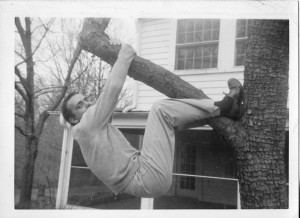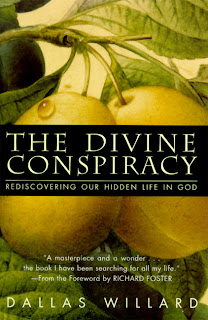There are a handful of authors who have influenced my thoughts, my theology, my faith, and my writing more than any others.
C. S. Lewis, Madeleine L’Engle, N. T. Wright …
and Frederick Buechner. 
Buechner wrote deep, aching truth alongside beautiful, longing hope. He saw this life of faith clearer than most, and now he sees face to face. He died a few days ago at age 96.
96 is a long life by any standards. His was a long life well lived. This kind of death brings sadness to those who will miss him and to the many more of us who will miss his words, but it is not a tragedy.
Frederick Buechner is finally face to face with the Jesus he adores. He ran this race well and now he can rest in peace with the One he loves.
In honor of the impact his writings have had on me, I pulled together some of my favorites among his words. These are in a completely random order, but I hope that they lure you into finding one of his books and letting his words sink as deeply into you as they have into me.
The final secret, I think, is this: that the words “You shall love the Lord your God” become in the end less a command than a promise. And the promise is that, yes, on the weary feet of faith and the fragile wings of hope, we will come to love him at last as from the first he has loved us – loved us even in the wilderness, especially in the wilderness, because he has been in the wilderness with us. He has been in the wilderness for us.
♦
We draw near to him by following him even on clumsy and reluctant feet.
♦
Adeste fidelis. That is the only answer I know for people who want to find out whether or not this is true. Come all ye faithful, and all ye who would like to be faithful if only you could, all ye who walk in darkness and hunger for light. Have faith enough, hope enough, despair enough, foolishness enough at least to draw near to see for yourselves.
♦
I believe that…the home we long for and belong to is finally where Christ is. I believe that home is Christ’s kingdom, which exists both within us and among us as we wend our prodigal ways through the world in search of it.
♦
We go because it is where His way leads us; and again and again we are blessed by our going in ways we can never anticipate, and our going becomes a blessing to the ones we go to because when we follow His way, we never go entirely along, and it is always something more than just ourselves and our own emptiness that we bring.
♦
Paul says that “God chose what is foolish in the world to shame the wise. God chose what is weak in the world to shame the strong. God chose what is low and despised in the world, even things that are not, to bring to nothing things that are”, and he points to “the apparent emptiness of the world where God belongs and to how the emptiness starts to echo like an empty shell after a while until you can here in it the still, small voice of the sea, hear strength in weakness, victory in defeat, presence in absence.”
♦
Even covered with sores and ashes, he looks oddly like a man who has asked for a crust and been given the whole loaf. (re: Job being given God himself in the middle of suffering)
♦
Words people speak have dynamite in them and a word may be all it takes to set somebody’s heart on fire or break it in two.
♦
So many of us are so bad at hearing each other and seeing each other that it is little wonder that one life seems enough to them or more than enough: seeing so little in this world, they think that there is little to see and that they have seen most of it already so that the rest probably is not worth seeing anyway and there is nothing new under the sun.
♦
You often hear the advice that if you keep busy, it will be over before you know it, and the tragedy of it is that it is true.
♦
God is the enemy whom Jacob fought there by the river, of course, and whom in one way or another we all of us fight — God, the beloved enemy … Remember Jesus of Nazareth, staggering on broken feet out of the tomb toward the Resurrection, bearing on his body the proud insignia of the defeat which is victory, the magnificent defeat of the human soul at the hands of God.
♦
It is these very everyday moments which, if we do not look with more than our eyes or listen with more than our ears, reveal only … the gardener, a stranger coming down the road behind us, a meal like any other meal. But if we look with our hearts, if we listen with all of our being and our imagination — if we live our lives not from vacation to vacation, from escape to escape, but from the miracle of one instant of our precious lives to the miracle of the next — what we may see is Jesus himself.
♦
Frederick Buechner also spoke of ordinary life as a fathomless mystery. He admonishes us to listen to the ordinary, everyday life and see it for what it truly is:
In the boredom and pain of it no less than in the excitement and gladness: touch, taste, smell your way to the holy and hidden heart of it because in the last analysis all moments are key moments, and life itself is grace.♦
The grace of God means something like: “Here is your life. You might never have been, but you are, because the party wouldn’t have been complete without you. Here is the world. Beautiful and terrible things will happen. Don’t be afraid. I am with you. Nothing can ever separate us. It’s for you I created the universe. I love you.”
♥






